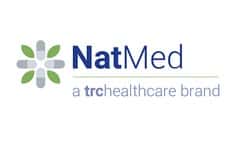Zyflamend, an extraction of herbs and other natural products, shows very preliminary clinical evidence, supported by preclinical evidence, of anticancer effects, especially for prostate cancer.
How do integrative experts use Zyflamend?
Both medical groups and integrative experts provide recommendations for Zyflamend in treating people with cancer. Learn more about the approaches and meanings of recommendations › (Customize this with the therapy name, plus whether groups and programs provide recommendations, then delete this sentence.)
Published protocols, programs, and approaches
Zyflamend is not listed in any of the programs or protocolsa package of therapies combining and preferably integrating various therapies and practices into a cohesive design for care that we reference, although several of its constituent ingredients are used in programs and protocols.
Other expert assessments
National Cancer Institute
Zyflamend is listed and described in the NCI’s PDQ as one of the multicomponent complementary therapies used in preventing and treating prostate cancers.
Dosing
See these sources for details about dosing and use:
General information about dosing
Find general dosing guidelines regarding natural products and supplements in Dosing Guidelines ›


